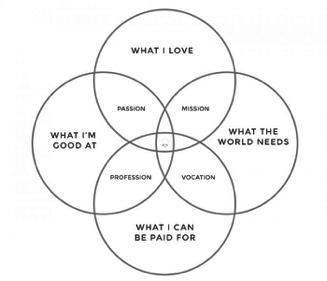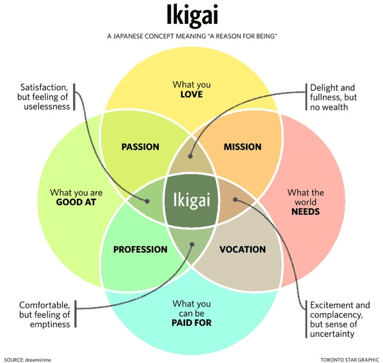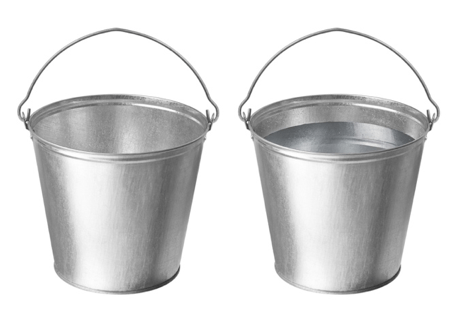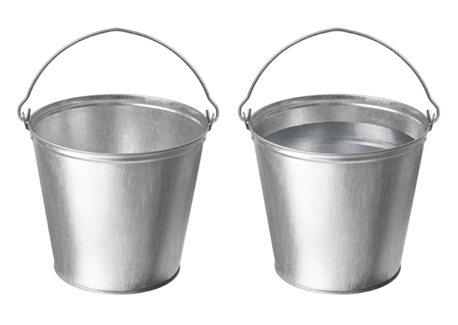Finding your ikigai
You’ve probably seen a few posts lately about ikigai (pronounced ee-kee-guy) and wondered what it’s all about. Since I first started reading up on the concept, I’ve often found myself sharing it with others. Why? Because at some point in most peoples lives, and careers, we stop and question what we are doing and why.
So what is ikigai?
Ikigai is a Japanese concept. There is no direct translation (and for any Japanese people reading this I apologise if I get this wrong), but it’s thought that ikigai is a combination of ikiru (‘to live’) and kai (‘the realisation of what one hopes for’). Or to put it more simply it’s about ‘a reason to live’. Think about the French phrase ‘Raison d'être’.
Finding your ikigai is all about a search of self or finding your purpose.
Which can take time.
Is this about work or life?
In the work I do (recruitment in the creative agency space), I find that as people become more senior in their careers, after years of blood, sweat, and tears, they find themselves having got to a certain level. They feel they should be proud, satisfied, happy even. But often they feel differently. They feel a sense that something is missing. They question what they do and why. They think a simple change of job or role will hold the answer.
But sometimes it goes deeper than this.
In the creative industry, and especially for those who work in creative agencies, there is still a perception (or in some cases an expectation) that long hours and being ‘always on’ will get you ahead. This can lead to a real lack of balance in life (yes I’ve been there too in my agency days). It’s so common for people to talk about ‘work/life balance’ or ‘work life integration’.
When people retire they often struggle if so much of their own ‘ikigai’ has been centered around their work.
This is where I love the concept of ikigai as I think it can really help guide all of us on finding our own balance, purpose, and meaning across the whole of our life.
Finding your ikigai
Start with asking yourself these 4 questions:
- What do you love?
- What are you good at?
- What does the world need from you?
- What can you get paid for?
When I went through this process myself a few months ago, I printed out the ikigai diagram and jotted down my thoughts on the diagram. This helped me to clearly see how I could move towards finding my own ikigai.
By going through this process for yourself you’ll start to see where the different parts of your life overlap.
For me, I’m currently a talent consultant. I’ve been told I’m good at it, and I get paid to do my role. I also really enjoy it. So that’s 3 circles that my role sits in. But does the world need someone doing a talent role for the creative industry? I’d say my job doesn’t fit in this circle. But luckily I have other things in my life that sit in the ‘what the world needs’ circle. For the last 6 years, I’ve been a volunteer crisis telephone counselor for Lifeline. Every other week, for 4 hours, I talk to people from all over Australia who are in crisis and need support. This is one of the best things I have ever done. I love that the simple act of listening and talking on the phone to someone in despair that I can help in some way to support them. So for me, my work with Lifeline sits in 3 of these circles; I just don’t get paid for it.

If you look at this version of the ikigai diagram, you’ll see that when you don’t have balance across these 4 areas, this can affect how you feel.
Finding your own ikigai can be seen as having balance across these 4 areas. Or finding your purpose. Whether that purpose is a single thing or the balance of a number of things, that’s up to you I think (but that’s just my opinion).

Not getting it? Think about your buckets
One of my former clients said something to me months ago which really struck a chord. She talked about having different buckets in her life that were all important. You could take the ikigai circles and think of them as buckets. You should have something in all of your buckets. If one is empty, you need to fill it with something. Perhaps one is full but leaking? How can you plug the leak?
I realised about 6 months ago that my ‘what I love’ circle, or bucket, had become pretty empty. I love painting yet hadn’t picked up a brush or been to a drawing class for ages. I used to play the Sax in about 5 different types of bands when I was younger, and I was good at it. Yet my Sax sat in a cupboard covered in dust. What was holding me back?
I realised I had to make time for my passions or I was losing a part of what made me, me. So I’ve got back to life drawing classes, booked in some intensive courses, had my Sax serviced and found some groups to join. Now I just need to go…
Last time I caught up with my client who talked about the ‘bucket’ concept, she exclaimed to me “all my buckets are full!” This was her form of ikigai.


So now it’s over to you. If you’ve been feeling that you’re out of balance but don’t know why, have a go at figuring out your own personal ikigai. And don’t forget, ikigai is something to work towards during life.
Working for Tomra is a great way to finding your ikigai, an organisation dedicated to saving our environment.
Check out the roles we're recruiting for:
If this sounds like the role for you, then get in touch with Beth.
__________
References
- https://en.wikipedia.org/wiki/Ikigai
- http://www.telegraph.co.uk/health-fitness/mind/finding-ikigai-japanese-secret-health-happiness/
- https://collectivehub.com/2017/10/the-japanese-practice-that-will-help-you-find-your-lifes-purpose/
- http://www.businessinsider.com/the-concept-of-ikigai-could-be-the-secret-to-a-long-meaningful-life-2017-9?IR=T
- http://www.bbc.com/capital/story/20170807-ikigai-a-japanese-concept-to-improve-work-and-life
- https://www.forbes.com/sites/bhaligill/2017/09/29/discover-your-passion-or-ikigai-with-4-simple-tips/#17fab8db53f7
- http://www.independent.co.uk/life-style/ikigai-hygge-lagom-swedish-danish-japanese-scandinavian-lifestyle-happiness-meaning-of-life-a7956141.html
- Imagery - https://assets.weforum.org/editor/tyvToPYsyaZXtaFiUISw-P6abde6j84YSh5o3tXq81c.jpg










